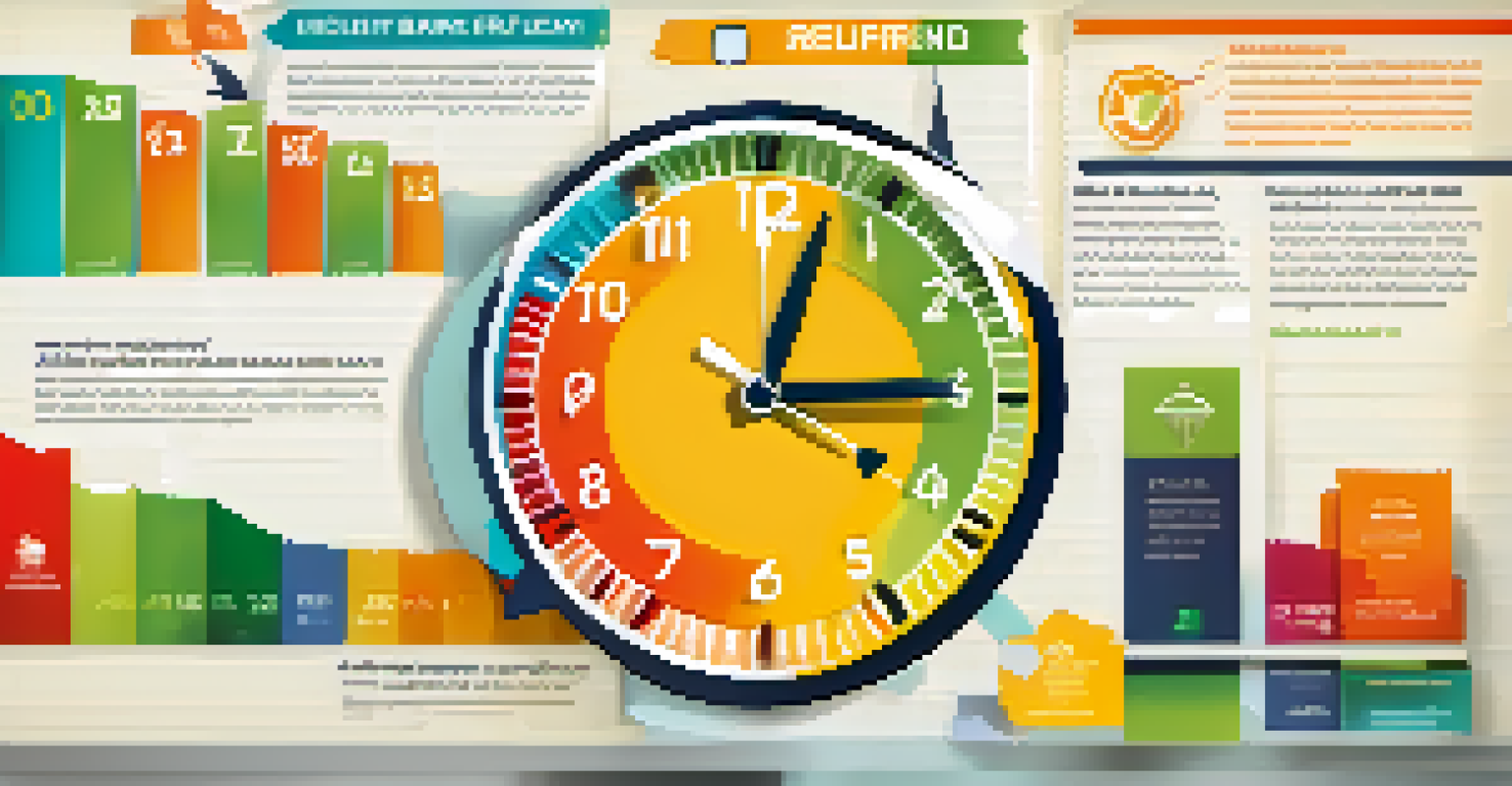Top Reasons Your Tax Refund Might Be Delayed This Year

Incomplete or Incorrect Tax Returns Can Cause Delays
One of the most common reasons for tax refund delays is errors on your return. Whether it's a missed signature or incorrect Social Security numbers, these mistakes can slow down the processing time significantly.
The only thing certain in life is tax and death.
When the IRS identifies errors, they may flag your return for review, which adds extra layers of scrutiny. This review process can take weeks or even months, leaving you anxiously waiting for your refund.
To avoid this pitfall, double-check your tax return before submission. Simple tools and checklists can help ensure everything is accurate, helping you to receive your refund without unnecessary delays.
Changes in Tax Laws May Impact Processing Times
Tax laws are regularly updated, and significant changes can lead to processing delays. For instance, if new credits or deductions are introduced, the IRS needs time to adjust their systems accordingly.

These updates can also create confusion for both taxpayers and tax preparers, leading to misfiled returns. As a result, your refund could be delayed while the IRS clarifies these new regulations.
Errors Delay Your Tax Refund
Common mistakes like incorrect information can slow down the processing of your tax return.
Staying informed about these changes can help you anticipate potential issues. By keeping abreast of tax law updates, you can ensure your return is filed correctly the first time.
Filing Status Can Affect Your Refund Timing
Your filing status plays a crucial role in how quickly you receive your tax refund. If you’re filing as 'Married Filing Jointly' or 'Head of Household,' for example, your return may take longer to process than simpler statuses.
In this world, nothing can be said to be certain, except death and taxes.
This is often due to the additional documentation and verification required for more complex situations. The IRS may need extra time to ensure that all claims are valid, particularly when there are dependents involved.
Understanding how your filing status impacts your refund can help you manage your expectations. If your situation is complex, be prepared for a potentially longer wait.
Errors in Bank Account Information Can Delay Direct Deposits
Many taxpayers opt for direct deposit to receive their refunds quickly, but errors in bank account information can lead to delays. If you accidentally enter the wrong account number, your refund may be sent to the wrong place.
Once the IRS processes your return, they can't simply redirect funds without going through a lengthy recovery process. This can lead to frustration and uncertainty as you wait for your money to be retrieved.
Tax Law Changes Cause Delays
Updates in tax laws can lead to confusion and additional review time, impacting your refund speed.
To avoid this, always double-check your banking details before submitting your return. A little caution can save you from a lot of hassle later on.
Identity Verification Issues Can Hold Up Refunds
If the IRS suspects any issues with your identity, they may put your refund on hold for verification. This is especially common in cases where there are multiple filings under the same Social Security number.
While this is a protective measure against fraud, it can lead to significant delays. You may receive a notice asking for additional documentation, which can prolong the refund process.
To minimize the chances of this happening, file your taxes early and accurately. Being proactive can help you avoid the complications of identity verification.
Claiming Certain Tax Credits May Lengthen Processing Times
Certain tax credits, such as the Earned Income Tax Credit (EITC) or the Additional Child Tax Credit, are known to extend refund processing times. The IRS takes extra precautions to ensure that these credits are claimed correctly, especially since they involve eligibility criteria.
As a result, returns claiming these credits may be held for additional review, which can delay your refund by weeks. While these credits can provide significant financial benefits, they can also lead to a longer wait.
Filing Timing Affects Refund Speed
The time of year you choose to file your taxes can significantly influence how quickly you receive your refund.
Filing as early as possible and providing complete documentation can help speed up processing times, even when claiming these credits.
Timing of Your Filing Can Influence Refund Speed
The time of year you file your taxes can greatly influence how quickly you receive your refund. Filing during peak times, like the last few weeks before the deadline, can result in longer wait times due to the sheer volume of returns being processed.
During these busy periods, the IRS may be overwhelmed, leading to potential delays. It’s often best to file as early as possible, allowing for smoother processing and fewer bottlenecks.

By planning ahead and filing early, you can avoid the stress of waiting for your refund during the busiest times of the year.
Using a Tax Professional May Affect Your Refund Timeline
While many people choose to use a tax professional for their expertise, this can sometimes lead to delays in receiving your refund. If your tax preparer is busy or overwhelmed with clients, it may take longer for them to process your return.
Additionally, if they need to gather more information from you or require adjustments, this can further prolong the process. Communication is key here; ensure you provide all necessary documents promptly.
If you're considering using a tax professional, plan ahead and establish a timeline to avoid any last-minute rush that could delay your refund.